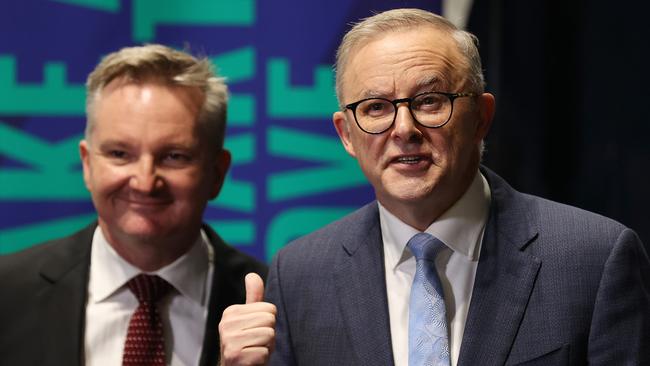A distant conflict powers Labor’s energy agenda
The war in Ukraine has changed Australia’s energy policies – and its energy politics – with a historic prices intervention by the federal government.

The war in Ukraine has changed Australia’s energy policies – and its energy politics – with a historic prices intervention by the federal government.
Labor’s success in pushing through a $12-a-gigajoule gas price cap was significant for its effect on consumers, with promises that while it will not lower prices, it will hold back the surge that would have occurred in 2023.
Power bills are expected to be reduced by about $230, and gas companies will be forced to abide by a code of conduct – a popular move for consumers worried about their mounting living costs.
But the move also demonstrated the government’s control of the national agenda and its confidence in pursuing difficult economic policies. The move has been resisted strongly by gas companies, with some leaders using extraordinary rhetoric, including accusing the government of “Soviet-style” market intervention. They complained “nationalisation” of the market failed to address the underlying causes of higher gas prices – declining supply and increasing demand for gas for power generation – and warned the intervention would damage investment.
But with the Ukraine war exerting such a disruptive impact on the global economy, the times favour Labor, encouraging it to take actions once regarded as untenable.
Anthony Albanese nailed the zeitgeist when he told a special sitting of parliament on Thursday: “Vote for this plan and vote for lower prices, or vote against it and vote for higher prices. Vote for this plan and stand up for jobs, industry and households. Or vote against it and stand with them, with companies banking record profits and sending them offshore.”
Labor had been under intense pressure since the October budget to address the high prices flowing from the disruption of the war. There was speculation about the government imposing a windfall profits tax on resource companies but the price cap – which will be in place for a year – proved more politically achievable. Over several weeks, the Prime Minister and his senior ministers worked their way through negotiations with the Greens, backbenchers and the states to emerge with a deal. Along with the gas price caps, Canberra also extracted agreements from Queensland and NSW to enforce a cap on coal for the same amount of time, at $125 a tonne. The package passed last week also includes $1.5bn of additional relief to small businesses and some households.
While coal and gas caps are temporary, the light shone on the sector has led to potentially more permanent change with the government now considering an overhaul of the Petroleum Resource Rent Tax ahead of the May budget in a bid to raise more revenue from oil and gas producers.
The Coalition did not support the prices legislation, arguing it will be “catastrophic” for Australian economic policy. But Labor’s action reflects the extent to which the war in Ukraine has changed the goalposts on the role of the Australian government in the market – just as in other countries.





To join the conversation, please log in. Don't have an account? Register
Join the conversation, you are commenting as Logout